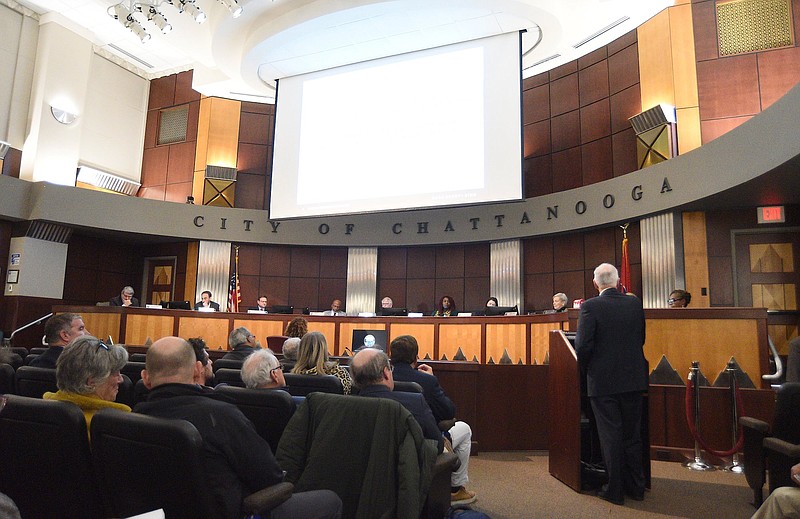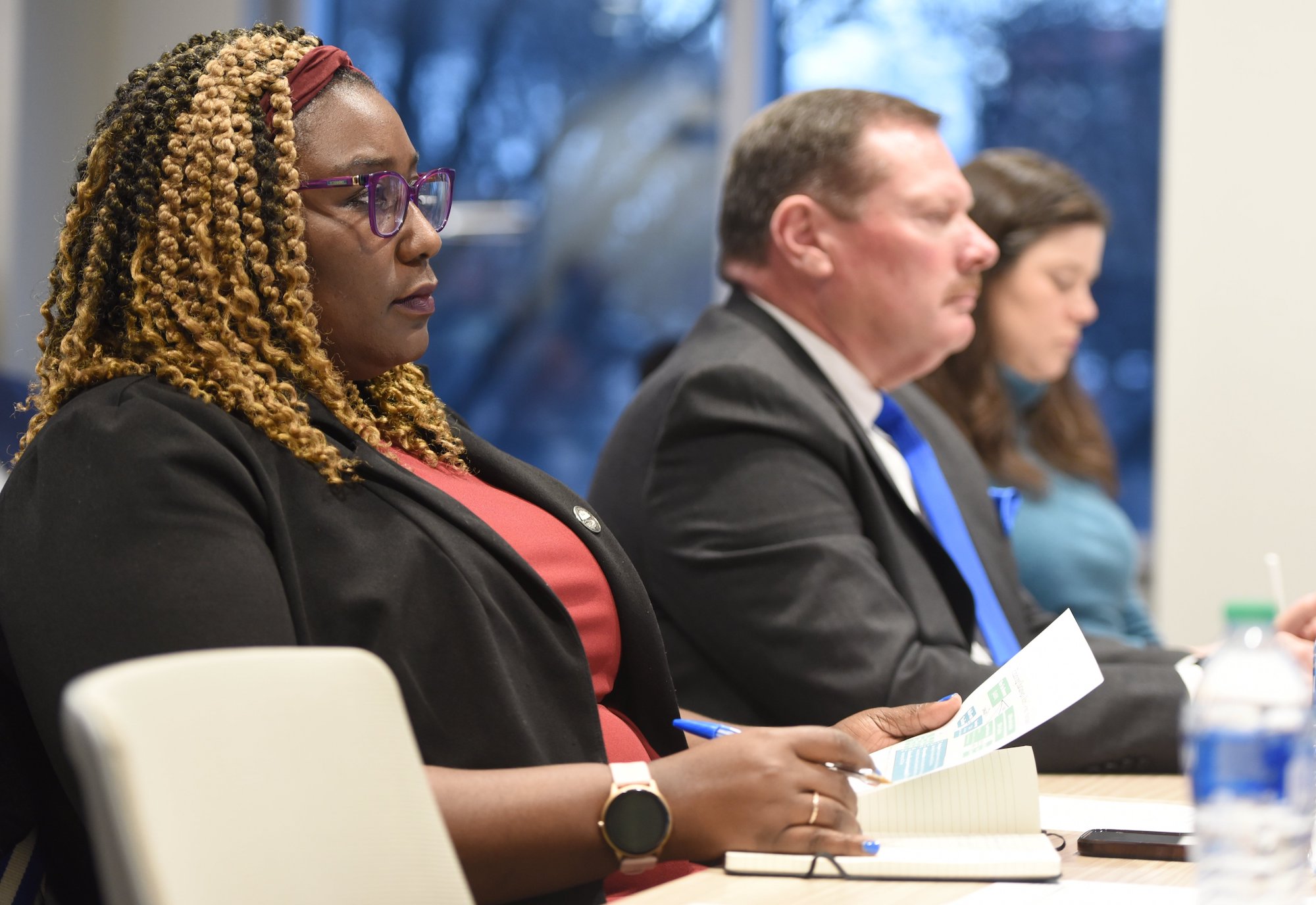To remain in line with their counterparts in Hamilton County government, members of the Chattanooga City Council will wait a week before considering an updated financing plan for a new $120 million minor league baseball stadium.
The Hamilton County Commission had been scheduled to consider the proposal Wednesday but opted last week to push the vote to Feb. 14 to give staff in Mayor Weston Wamp's office time to review the new terms.
City Council members Tuesday likewise decided to push their vote to the same week, on Feb. 13.
The two panels are considering whether to allow a sports authority jointly created by Chattanooga and Hamilton County to take on additional debt for the project.
Council member Ken Smith, of Hixson, also sits on the County Commission. He requested the deferral during the meeting Tuesday in case there are changes in the financing plan between now and next week.
Wamp has slammed County Commission Chair Jeff Eversole, R-Ooltewah, for negotiating an updated deal without his involvement, a move that also ruffled some feathers on the County Commission. Asked if there are specific requests the mayor's office is bringing to the negotiating table or if they expect the deal to change, Wamp's spokesperson, Mary Francis Hoots, said in a text they don't have any updates.
City Council Chair Raquetta Dotley, of East Lake, represents the area where the stadium will go and said in an interview Tuesday she continues to support the project.
"It's definitely the economic driver that we need for the southern part of our city," she said.
The 120-acre former Wheland Foundry/U.S. Pipe site has gone unused for a long time, she said, and the surrounding neighborhoods have seen little investment and development over the preceding years.
"When you look at it from a higher level, this is going to be just a great impact for our city, but it's also going to be great for all those adjoining neighborhoods and communities," Dotley said. "You already see developments coming up on that south end of Broad Street. You see new apartments going up, you see new convenience stores going up. You already see that."
The project is not about personal feelings, Dotley said, it's about how Chattanooga wants to see itself in the next 30 or 40 years.
"Do we want to be the city that let a great opportunity go or a city that says, 'Hey, we're on the edge of innovation, the edge of great economic revitalization,'" she said.
After the cost of the project escalated from an initial estimate of $79.5 million to $129 million, which counts capitalized interest, officials unveiled a new funding proposal in January whereby Hardball Capital, owners of the Chattanooga Lookouts, and Perimeter Properties, the project's landowners, would borrow $40 million from a consortium of banks to plug the funding gap.
A sports authority created by the city and county would pay back that loan with new property tax revenue created in a 470-acre special tax district around the stadium.
The taxpayer money funding the stadium, officials have said, would only come from the increased value of properties in that 470-acre zone plus sales taxes collected on concessions, tickets and other purchases in the new facility. The Lookouts would also pay an escalating $1 million annual lease over 30 years to help cover debt service on the bonds.
After recent negotiations involving Eversole and Chattanooga Mayor Tim Kelly, the City Council and County Commission are now mulling an updated plan that would reduce the private loan from $40 million to $32 million, decreasing the property tax revenue necessary to cover bonds on the project. That means the deal's private partners would be responsible for any costs beyond $112 million, proponents have said.
(READ MORE: Hamilton County Commission pushes back Chattanooga Lookouts stadium vote)
Under the revised deal, officials have said, the Lookouts would put in $3 million up front for construction, and the team or developers would then invest more money if the cost of the stadium exceeds $115 million, according to a presentation Chattanooga's bond counsel, Mark Mamantov, gave the City Council on Jan. 30.
The team would pay the sports authority $250,000 per year for parking rights, and the sports authority would in turn pay up to $250,000 annually for the Lookouts' utilities over 12 years.
"This basically gives the team more flexibility to borrow additional funds than what they anticipated so they can make this $3 million capital contribution," Mamantov said during the council meeting last week.
Contact David Floyd at dfloyd@timesfreepress.com or 423-757-6249.

